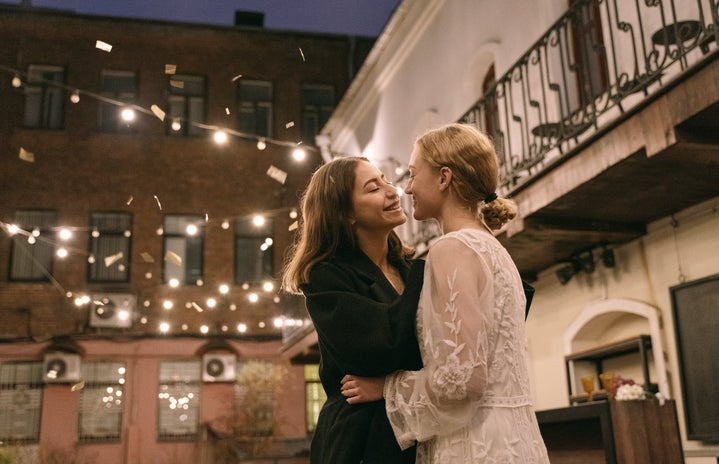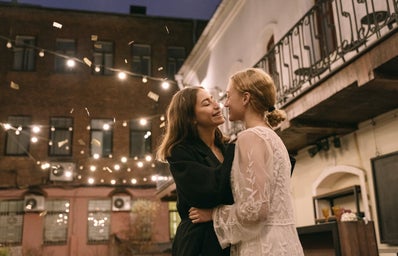Despite only recently discovering Chappell Roan’s music, I have quickly become hooked–and in both the wake of a certain artist claiming she has invented “Gay Pop,” and inspired by Miranda Dowie’s recent piece analyzing the song sparking that revelation (which you should absolutely check out on Conn’s Her Campus page–- it is an exceptional article), I could not help but think even more deeply about Roan’s “Good Luck, Babe!” and why it resonates both with me and so many other queer people. I identify as a lesbian, and have publicly identified as queer since 2020, but know both how it feels to be in the closet, in denial, and how it feels to be rejected by or have to turn someone down because they are not willing to be out publicly. There is so much nuance to sexuality and to coming out as queer, and in no way is my experience all-encompassing, nor do I claim it to be. Yet, I know both from the sheer numbers and shares of “Good Luck, Babe!” and through the visceral feeling I experienced hearing it, that the experiences it describes are far broader than each individual relating to them. That is not to say that individual feelings and relations to the track are not important–art is ultimately an individual experience, and no two people will see the same thing the same way–but the experiences that shape those individual experiences can and do, so often, have broader relations.
First of all, if queer people–- and specifically sapphics, in this case–were never discriminated against, far fewer people would be in the closet, if any, and there would thus be few if any situations where one party felt they had to keep the relationship a secret for fear of coming out and being shunned. Internalized homophobia is not confined to each individual, nor is discrimination. I know full well it would not have taken me until I was sixteen to come to terms with my sexuality if not for the things I had heard and internalized about queer people, and specifically queer women–and I also suspect I may not have incorrectly assumed I was bisexual until I was nineteen (for the record, there is absolutely nothing wrong with experimenting or redefining your sexuality as time goes on, nor are bisexual people confused–I simply thought I was bisexual for the wrong reasons).
The mix of resentment, anger, frustration, and yearning in the lyrics to “Good Luck, Babe!” are both evenly balanced and extremely well connected. The exasperation of “it’s fine, its cool // you can say that we are nothing but you know the truth,” while not groundbreaking lyrics in terms of originality, start the song perfectly, immediately bringing in the annoyance and frustration of being hidden and pushed to the side paired with the exasperation of just wishing the person would be open about things. The following verse is equally perfect, bringing in a mix of having strong feelings for the person and not wanting to let them go, but knowing it is not fair on anyone to be a secret.
The chorus is equally well-done, both in the almost-shouting manner in which it is sung where the pain and frustration in Roan’s voice is palpable, and in the sarcastic and biting quality of the lyrics. “Good luck, babe,” indeed! The trope and quality of singing to a woman not willing to come to terms with her own sexuality but who is so clearly queer is not new by any means–my mind immediately conjures up images of Hayley Kiyoko’s “Curious,” Claud’s “Wish You Were Gay,” (though it is not my personal favorite), and so many others that I could spend all day listing them if I wanted–- but “Good Luck, Babe!” may be unique in its combination of sarcasm and biting frustration. It almost alternates line by line in the way it goes from direct anger and annoyance at being the recipient of another person’s unwillingness to come out and yearning for the potential and feeling of being with that person. Long story short, it is both an excellent song and a great addition to gay pop-– which, yes, is already a thing that exists.


